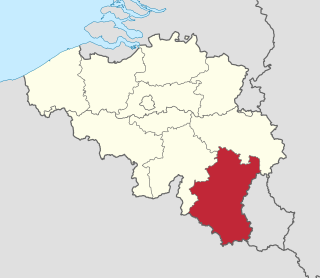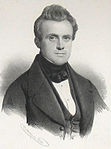
The United States Senate elections of 1924 were elections for the United States Senate which coincided with the election of Republican President Calvin Coolidge to a full term. The strong economy and Coolidge's popularity helped Republican candidates increase their majority by four, although several interim appointments had worsened their numbers since the 1922 election; as a result, the party achieved a net gain of only one seat since the previous voting cycle.

Bulgaria elects on national level a head of state - the president - and a legislature. The president is elected for a five-year term directly by the people. The National Assembly has 240 members, elected for a four-year term by proportional representation in multi-seat constituencies with a 4% threshold. Bulgaria has a multi-party system, in which no one party often has a chance of gaining power alone, and parties must work with each to form governments.
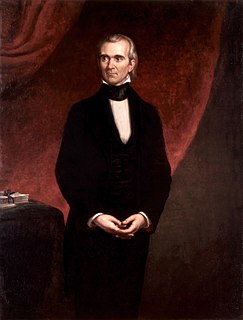
Elections to the United States House of Representatives for the 25th Congress were held at various dates in different states from July 1836 to November 1837.

The 2007 United States elections were held on Tuesday, November 6. During this off-year election, the only seats up for election in the United States Congress were special elections held throughout the year. None of these congressional seats changed party hands. There were also several gubernatorial races and state legislative elections, and numerous citizen initiatives, mayoral races in several major cities, and several types of local offices on the ballot.

The 2002 United States elections were held on November 5, in the middle of Republican President George W. Bush's first term. Unusual in midterm elections, the incumbent president's party gained seats in both chambers of the United States Congress. The Republicans picked up net gains of 2 Senate seats and 8 House seats.

The 2009 United States elections were held on Tuesday, November 3. During this off-year election, the only seats up for election in the United States Congress were special elections held throughout the year. In total, only the seat representing New York's 23rd congressional district changed party hands, increasing the Democratic Party's majority over the Republicans in the United States House of Representatives, 258–177.

The 2001 United States elections were held on November 5 of that year. The 2001 recession was a dominant issue throughout the year as well as to a lesser extent the September 11 attacks and subsequent War on Terror, the latter of which would become especially important issue in the next year.

General elections were held in Zambia on 5 December 1973. They were the first elections held since the country was formally declared a one-party state in August, with the United National Independence Party (UNIP) as the only legally permitted party. UNIP leader Kenneth Kaunda was automatically elected to a third five-year term as President, and was confirmed in office via a referendum in which 88.8% of voters approved his candidacy. UNIP also won all 125 seats in the National Assembly. Voter turnout was 39% of the 1,746,107 registered voters for the presidential election, and 33% for the National Assembly election.
Partial legislative elections were held in Belgium on Tuesday 9 June 1835. In the Senate elections Catholics won 31 seats and Liberals eight. Only 23,000 people were eligible to vote in the election.
Partial legislative elections were held in Belgium on 12 June 1843. In the Senate elections Catholics won 32 seats and Liberals 13. Voter turnout was 86.0%, although only 21,865 people were eligible to vote.

Partial general elections were held in Belgium on 11 June 1850. In the Chamber of Representatives elections the result was a victory for the Liberal Party, who won 69 of the 108 seats. Voter turnout was 69.1%, although only 40,435 people were eligible to vote.

Partial general elections were held in Belgium on 8 June 1852. In the elections for the Chamber of Representatives the result was a victory for the Liberal Party, who won 57 of the 108 seats. Voter turnout was 69.2%, although only 42,053 people were eligible to vote.
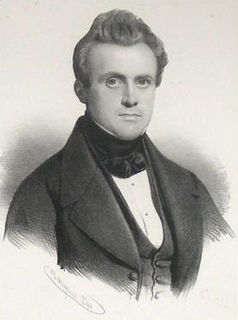
Partial general elections were held in Belgium on 10 June 1856. In the elections for the Chamber of Representatives the result was a victory for the Catholics, who won 63 of the 108 seats. Voter turnout was 60.6%, although only 43,573 people were eligible to vote.

Partial general elections were held in Belgium on 11 June 1861. In the elections for the Chamber of Representatives the result was a victory for the Liberal Party, which won 66 of the 116 seats. Voter turnout was 58.4%, although only 47,555 people were eligible to vote.
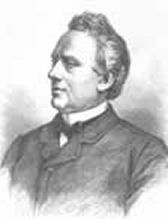
General elections were held in Belgium on 9 June 1868. In the elections for the Chamber of Representatives the result was a victory for the Liberal Party, which won 72 of the 122 seats. Voter turnout was 55.6%, although only 55,297 people were eligible to vote.

Partial general elections were held in Belgium on 11 June 1870. In the elections for the Chamber of Representatives the Liberal Party and the Catholic Party both won 61 seats. Voter turnout was 60%, although only 51,435 people were eligible to vote. Early elections were held later in the year.

Partial general elections were held in Belgium on 14 June 1859. The result was a victory for the Liberal Party, which won 69 of the 116 seats in the Chamber of Representatives and 31 of the 58 seats in the Senate. Voter turnout was 55.9%, although only 49,672 people were eligible to vote.

Partial general elections were held in Belgium on 9 June 1863. The result was a victory for the Liberal Party, which won 59 of the 116 seats in the Chamber of Representatives and 33 of the 58 seats in the Senate. Voter turnout was 74.5%, although only 52,519 people were eligible to vote.

Partial general elections were held in Belgium on 13 June 1882. The result was a victory for the Liberal Party, which won 79 of the 138 seats in the Chamber of Representatives and 37 of the 69 seats in the Senate. Voter turnout was 75.1%, although only 55,517 people were eligible to vote.

The 1999 United States elections, which were held on Tuesday, November 2, were off-year elections in which no members of the Congress were standing for election. However, there were three gubernatorial races, state legislative elections in four states, numerous citizen initiatives, mayoral races in several major cities, and a variety of local offices on the ballot.


